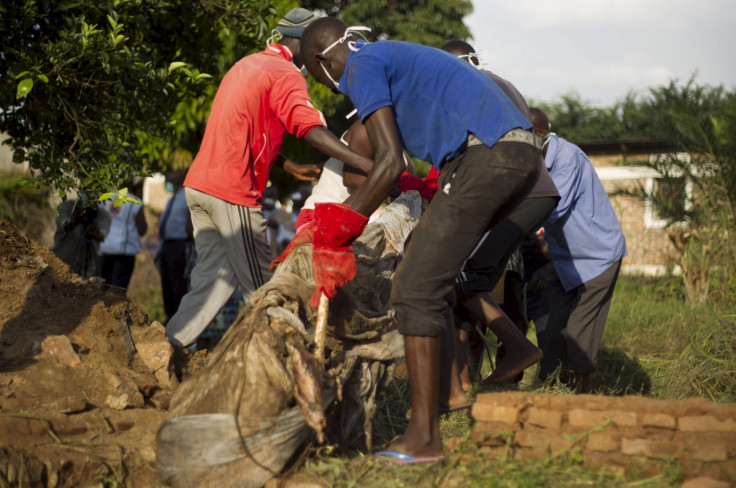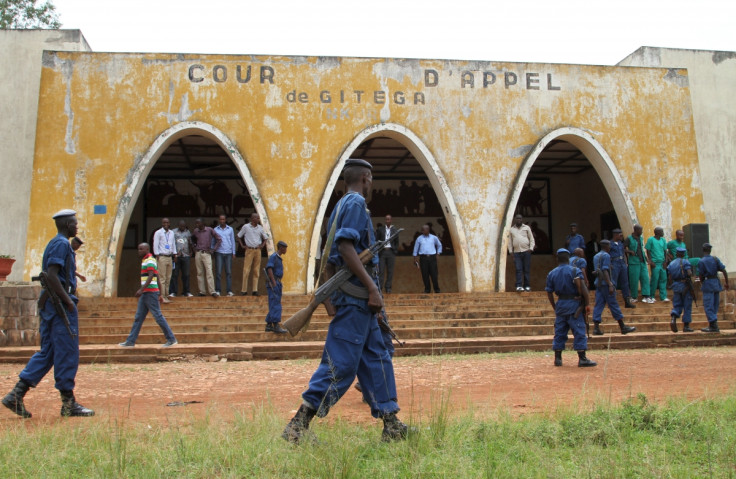Burundi human rights: UK urges Nkurunziza regime to stop abuse of prisoners

The UK government has called on the Burundian government to protect prisoners' human rights and stop abuses, after raising concerns about the treatment of prisoners in the African nation that has been rocked by deadly political violence for over a year.
The bloody crisis that has seen up to 900 people killed, pits supporters of President Pierre Nkurunziza against those who say that his re-election in July 2015 for a third term violated the nation's constitution. After a failed coup, the government intensified its crackdown and most of those arrested or disappeared today are young men and women accused of participating in or supporting opposition groups, including armed groups whose attacks have also left dozens dead.
Days after Gregory Stanton, founder of Genocide Watch, warned a genocide is in preparation in Burundi and the United Nations (UN) may be too late to prevent it, the UK special envoy to the African Great Lakes, Danae Dholakia, urged Burundi's authorities to find solutions on the basis of democracy and respect for human rights.
"The UK shares the grave concern of the international community over the treatment of prisoners in Burundi. We continue to hear widespread reports of arbitrary arrest and killings, disappearances and torture," Dholakia said.
Since the beginning of the crisis, IBTimes UK has investigated and reported shocking cases of human rights abuses where, for instance, a prisoner was forced to a hang 5-litre jerry can from his testicles. In another case, a lawyer representing two of the people accused of plotting the coup described how his clients were "unlawfully detained" and "faced harsher incarceration conditions" before their trial.
Burundi regime urged to 'end horrendous abuses'

Amid continuing violence and a persistent political impasse in Burundi, the UN Security Council unanimously adopted the Resolution 2279 on 1 April, urging Bujumbura to reject any kind of violence and condemn any public statement inciting hatred, demanding that they refrain from actions that threatened the country's peace and stability.
It also called on the government to guarantee fundamental freedoms for all and adhere to the rule of law, strongly condemning all violations and abuses of human rights.
"We urge the government of Burundi to comply quickly and fully with UN Security Council Resolution 2279 and take steps to end these horrendous abuses, including providing unfettered access to international human rights monitors and the United Nations police contribution agreed in the resolution," Dholakia said.
The resolution also requested a UN police deployment to monitor the security situation, promote respect for human rights and advance the rule of law in the country.
Bihozagara death 'example of failure to protect prisoners'

The special envoy said the death of former Rwandan Ambassador Jacques Bihozagara in prison in Bujumbura on 31 March nearly four months after being arrested for espionage was "another example of the failure of the Burundian authorities to protect the human rights of those detained by the security forces".
Dholakia added: "While we welcome the return of his body to his family, there now needs to be a full investigation into his death."
On the day Bujumbura announced Bihozagara's death, the Rwandan government urged Nkurunziza's regime to explain the circumstances leading to the death of Rwanda's former ambassador to Belgium.
Sources in both Burundi and Rwanda told IBTimes UK they believed Bihozagara may have been assassinated in Burundi's Mpimba Prison, where he was jailed.
"Mr Jacques Bihozagara is one of many Rwandans in Burundi who died violently or suspiciously in the past months. The Ministry of Foreign Affairs and Cooperation of Rwanda wishes to obtain precise information from the Burundian authorities on the circumstances of his death and clarifications on the reasons for his detention since last December," a statement from the Ministry of Foreign Affairs, issued on 31 March, said.

© Copyright IBTimes 2024. All rights reserved.







